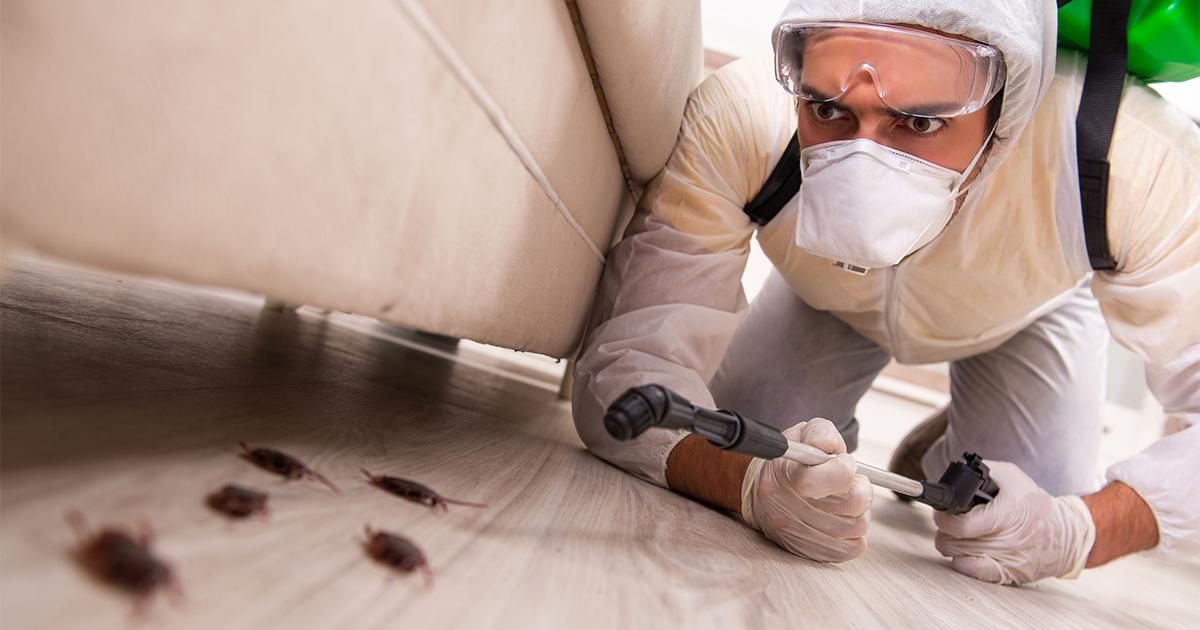Introduction: What is a Pest Control Company and How Does it Actually Work?
What is a Pest Control Company and How Does it Actually Work?
Companies, Pests, Pest control, Pest management
Pests are insects or other animals that cause damage to the plants in your home. They can be crawling or flying bugs. Some pests are small and harmless while others can be very dangerous. Knowing how to identify pests and what to do with them is important for your safety and the safety of your plants.
Pests are not just a nuisance, they can actually cause serious damage to your plants if you don't know how to identify them before they enter your home.
The first step in controlling pests is knowing what they look like so you can find them when they enter your home. You should also learn about the different types of pests that live in
Why Homeowners Should Use a Local Pest Control Service
With the growing popularity of Pest Control Services, homeowners are now able to get rid of pests without using any chemicals.
The benefits that a homeowner can get from using a local pest control service are numerous. They can save money and time by not having to worry about buying pesticides or hiring professionals for the job.
A lot of people have started to use these services because they know that they don't harm their children, pets, or other living things.
Is Pest Control a DIY Project?
It is a common misconception that pest control is a DIY project.
Pest control is not something that you can do on your own. It requires professional help and knowledge to be able to make sure that the job is done properly and without any risks of accidents.
Many people think pest control is a DIY project, but this couldn't be further from the truth. It's important to understand what pests are, how they get in your home, and how they affect your health and the health of your family members before you hire professionals for pest removal services.
How to Choose Which Type of Pest Control Method Best Suits You and your Home
There are several types of pest control methods available. Some of them are more effective than others.
The best way to choose which type of pest control method is best suited for you and your home is to think about what pests you have and what their habits are.
For example, if you have termites in your home, then the best option would be a chemical treatment or fumigation. If you don't know how they got in your home, then it could be a good idea to use traps or bait stations.
Pesticides and rodenticides will work on most types of pests, but they can also kill other animals that may not be pests such as birds and pets. For this reason, these methods should only be used when absolutely necessary.
How to Start Your Own Pest Control Business from Scratch?
There are many ways to start a pest control business from scratch. One of the most common methods is to start with a franchise.
Pest control franchises are one of the easiest ways to get started in this industry. However, some people prefer to go it on their own and there are many benefits that come with that decision.
One of the biggest benefits is that you will be able to create your own niche and tailor your services for your customers as you see fit. You will also have more flexibility in pricing and won't be tied down by franchise contracts or other restrictions.
Another benefit is that you can choose your location, which means you can work from home or from a remote location if you want to keep costs down.
Finally, starting on your own gives you more
How to Get the Right Type of Job as a Pest Technician or in the Industry as a Whole?
The job market is getting more competitive as people are looking for ways to make a living. The industry is no exception. With new technologies and innovations, the industry is changing at a rapid pace.
Pest technicians have to be familiar with different types of pests, their habits and how to control them. They also need to know how to protect the public from these pests.
The following are some of the important skills that pest technicians need:
- Knowledge in chemistry
- Knowledge in biology
- Experience with pest control equipment
- Experience with pesticides and insecticides
- Knowledge in pest management





 people sitting on chair in front of computer
people sitting on chair in front of computer



 all stars lol GIF by Lifetime
all stars lol GIF by Lifetime two women talking while looking at laptop computerPhoto by
two women talking while looking at laptop computerPhoto by  shallow focus photography of two boys doing wacky facesPhoto by
shallow focus photography of two boys doing wacky facesPhoto by  happy birthday balloons with happy birthday textPhoto by
happy birthday balloons with happy birthday textPhoto by  itty-bitty living space." | The Genie shows Aladdin how… | Flickr
itty-bitty living space." | The Genie shows Aladdin how… | Flickr shallow focus photography of dog and catPhoto by
shallow focus photography of dog and catPhoto by  yellow Volkswagen van on roadPhoto by
yellow Volkswagen van on roadPhoto by  orange i have a crush on you neon light signagePhoto by
orange i have a crush on you neon light signagePhoto by  5 Tattoos Artist That Will Make You Want A Tattoo
5 Tattoos Artist That Will Make You Want A Tattoo woman biting pencil while sitting on chair in front of computer during daytimePhoto by
woman biting pencil while sitting on chair in front of computer during daytimePhoto by  a scrabbled wooden block spelling the word prizePhoto by
a scrabbled wooden block spelling the word prizePhoto by 
 StableDiffusion
StableDiffusion
 StableDiffusion
StableDiffusion
 StableDiffusion
StableDiffusion

 women sitting on rock near body of waterPhoto by
women sitting on rock near body of waterPhoto by 
 Photo by
Photo by  Photo by
Photo by  Photo by
Photo by  Photo by
Photo by  Photo by
Photo by  Photo by
Photo by  Photo by
Photo by  Photo by
Photo by  Photo by
Photo by  Photo by
Photo by 








